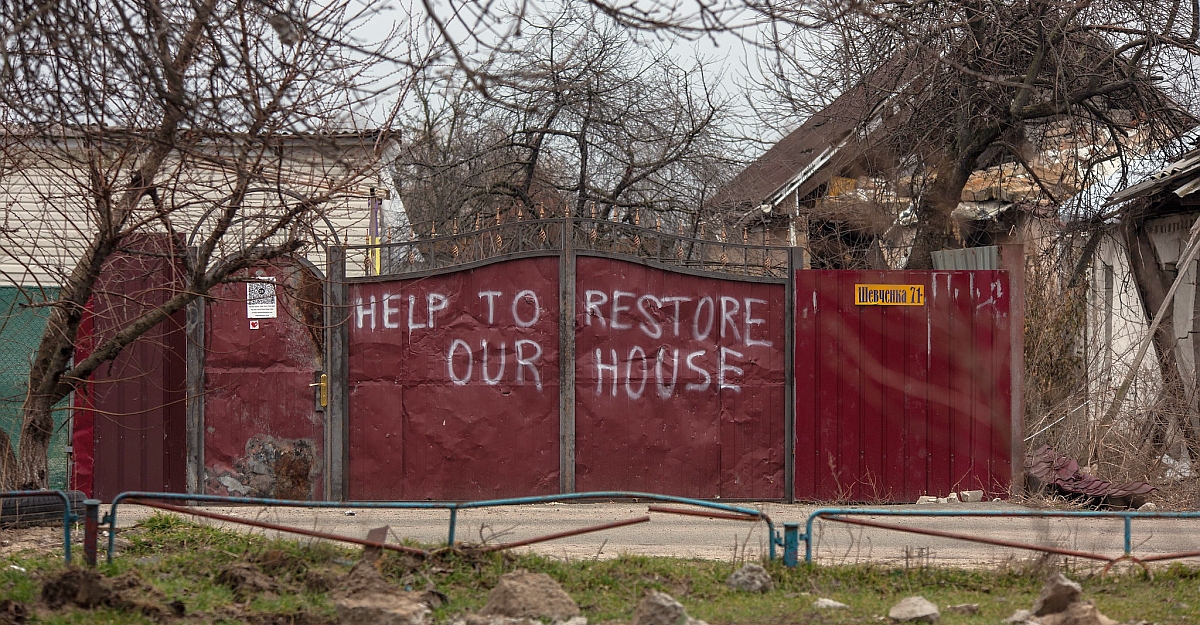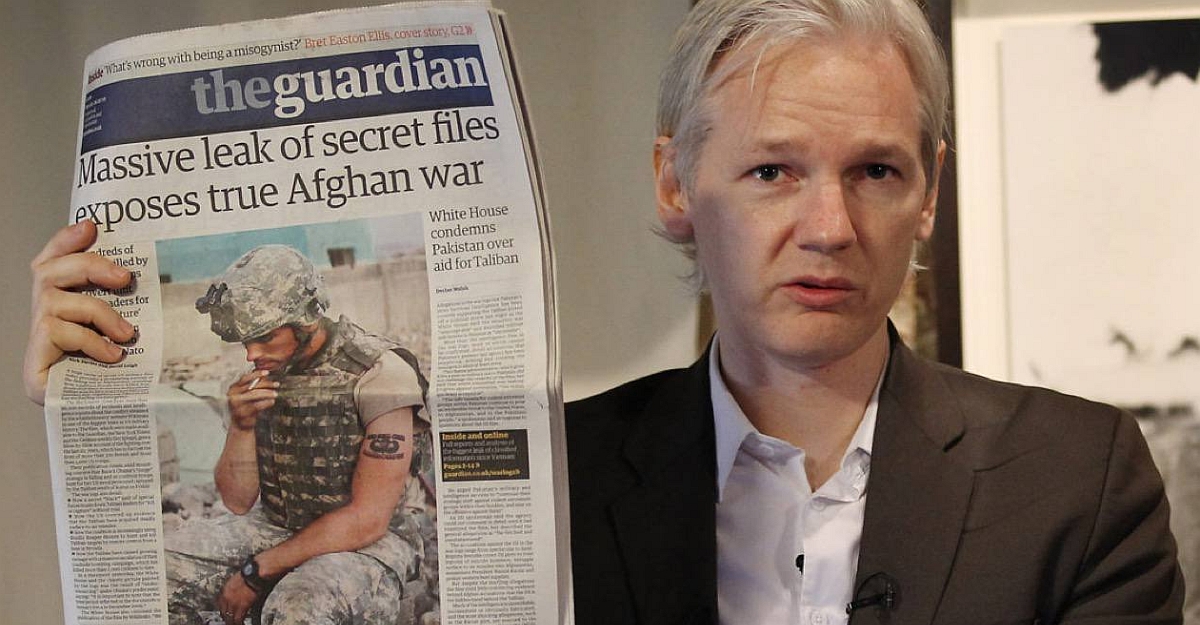We are sitting on the terrace on an elongating spring evening in Athens and the conversation invariably turns to the week’s developments on Syria. I ask my friend, from Aleppo, what he thinks about Trump’s actions – the ‘big price’ the US President has attempted to extract from the Assad regime for its alleged chemical attack on civilians in the rebel-held enclave of Douma, in Eastern Ghouta. He sighs and raps on the table.
‘Listen, did you see what the Syrian Government said afterwards? They made a list of the things they lost in the air-strikes: a pair of socks that a soldier left outside and some crushed iron that cost them $2,000 to remove.’
‘And don’t forget the matte glass!’ another young Syrian interjects. ‘Plus, the socks had holes in them …’
‘So the regime lost nothing, they said,’ my friend continues. ‘But America, France and Britain lost more than $25 million in the strikes … Anyway, the Saudis will pay that bill for them.’
‘Yes, Bin Salman came the day before to London to deliver the cash so they didn’t even have to pay credit card …’
‘Look, they are not serious,’ he goes on. ‘If America or England really had a problem with Assad, he wouldn’t be here anymore. In Iraq, they had a problem with Saddam and he is now gone. In Libya, they had a problem with Gaddafi, and he is now gone. In Syria, we still have Assad.’
Syria is much closer to us here in Greece – geographically, culturally, personally – than to Washington, London or Paris. Yet the latest intervention appears to be vested with far less gravity than in those centres of power from which hard-talk and earnest debate have emanated recently. This is not because there is any less regard for the severity of the situation there (to the contrary, of course), but rather perhaps because the US-led air-strikes are viewed from the relative perspective of a seven-year war that has killed some 500,000 people, internally displaced six million people and driven another five million abroad. So the strikes are perceived as bearing comparatively little weight; they are seen for what they are – theatre.
Of course, the brash antics of the fickle, ill-informed megalomaniac Trump are terrifying theatre. And they are dangerous theatre, the possible military repercussions in this case being incalculable, and should be opposed as such. Yet the whole allied mission is theatrical in the sense that it re-casts the war in a false contrivance of geopolitical conflicts: the West against Assad, Assad against Islamic State, Iran against the West, the US against Russia.
(The stagecraft of the latter was particularly compelling, despite the fact that as commentators noted at the time, Russia [and thereby Assad] had received due warning about the targets of the strikes by Washington and so were able to prepare to avert any serious losses.) Whereas a more accurate portrait of the conflict might be characterised by the precipitating fault line of Assad’s campaign against his own Syrian opponents, and the various ensuing forms of international collaboration therein.
Mostly, however, the recent intervention is theatre because it requires a suspension of disbelief; a continuation of the illusion that, in Trump’s words, ‘we cannot allow atrocities like that.’ For we – the ‘international community’ in this instance – have allowed atrocities like that, and others from across the full spectrum of atrocity, to take place in Syria uninterrupted for six years or more. We have allowed them with relative ease and only intermittent spells of political angst and excitement. So when British Prime Minister Theresa May (et al) on this occasion evoked the need to intervene in order ‘to prevent further human suffering’ it takes a strong dose of make-believe to think that human suffering in Syria will not continue to escalate and intensify as it has done over the course of the war since 2011. Or indeed, to believe that there is any real investment on the part of international leaders in alleviating the catastrophe or ending the killing.
As was quickly pointed out by some commentators following the attacks, the international community’s espoused ‘red line’ on chemical weapons is as good as a green light to Assad (and others) to continue the slaughter by other means.
Watching the fallout of the assault on Douma unfold, I remembered speaking to Syrian activists almost five years ago in August 2013 as reports emerged of a massive chemical attack in Ghouta (a massacre of a scale not witnessed since Saddam Hussein’s genocidal campaign against the Kurds). Some among them said that they had expected such an attack, that the mounting brutality of the Assad regime had been given the tacit go-ahead at each increment by the inaction of the international community. Chemical weapons were the natural progression.
Since 2013, such weapons have been used countless times in Syria by the regime and, on a smaller scale, by militant groups like Islamic State. Indeed, at least half a dozen instances of chemical weapons use by Assad forces were documented this year alone prior to April’s attack, notwithstanding a previous round of retaliatory US missile strikes following a lethal gas assault in 2017.
At the time of that first massacre in Ghouta, prominent voices were already decrying the ‘failure of the international community’ on Syria, among them, the United Nations’ then-special envoy, Kofi Annan. Over the years, it seems to have been a case of rinse-and-repeat, with regular headlines reporting similar proclamations by politicians, diplomats and commentators – a five-year-long rhetorical churn of atrocity, abhorrence and failure that bubbled to the surface again this month. It is not surprising then that ‘crying crocodile tears’ has become the preferred finger-pointing charge on the part of all the feuding foreign parties to the conflict for such occasions (most recently, between British and Russian representatives at UN conventions following the attack.)
The failure of the international community – on Syria specifically and on myriad other prior and ongoing crises – is of course nothing new. And it may seem banal to again point out the redundancy of our global diplomatic apparatus. For we have come to expect failure from international institutions and national governments whose agendas we might variously reject, dispute or disdain, and whose interventions in the name of peace-making and humanitarianism have bred chaos time and again.
Accordingly, many of us in Western democracies have opposed – rhetorically or actively – the actions of our governments on Syria, like the recent strikes, with due scepticism and foresight about their moral and practical bankruptcy. Yet the collective failure of our maligned political leaders on Syria is not irrelevant to us. It is not remote. For it reflects a broader failure of politics that extends beyond our formal institutions to all spheres of political thought and action. Nor is such a collective failure an end point, a conclusion. For what follows failure in this case is only more atrocity, more abhorrence and more failure. Rinse and repeat.
There are, of course, no easy answers to the question of ‘what can be done’ in Syria. And there are no good solutions. By which I mean there are no clear solutions and no desirable solutions – especially for those who count themselves broadly among the anti-war, anti-interventionist, pro-peace camps of the left. At this stage of the conflict, when events on the ground are at their murkiest, the means in use the bloodiest and the forces of civil society most threatened, there is only a set of bad options.
But this does not mean that doing nothing is a good, or even the least bad, option. Opposing certain forms of action (namely, military action) by our governments has not led to proposals or demands for alternative action. Indeed, it hasn’t led to much action at all from those of us in the anti-war, anti-interventionist, pro-peace camps. Instead, it has led to generalised inaction – or more insidiously, to a form of ideological anti-interventionism that has endorsed pro-Assad and Russian propaganda, perpetuating disinformation in the name of anti-(Western) imperialism.
(Such a stance is typified by veteran leftist journalists and commentators such as Tariq Ali and Robert Fisk, as has been widely noted and condemned by other critical writers and activists on Syria.)
Inaction under the banner of ‘anti-war’ has not done anything to prevent more war. So the failure of the international community is paralleled by a failure of the left.
If not continued failure then, what faces us is a set of bad options – of unclear, undesirable, options – and the task of thinking through them for the least bad. In doing so, it may be tempting to believe, as Jeremy Corbyn has advocated, that there is still the possibility of a diplomatic channel for resolving the catastrophe.
Yet evidence from the past seven years, compounded by current geopolitical configurations, makes it increasingly impossible to imagine a scenario in which Assad will be compelled to negotiate through diplomacy alone. This is not to mention the concurrent, staggering impotence of any political will toward such a diplomatic goal (including on the part of Corbyn’s own Labour party).
Of course the latest US-led strikes did not work (in the sense they have done nothing to alleviate suffering or advance a solution). Just as none of the West’s continuous bombardment of Syria since 2014 in the name of a ‘War on Terror’ against Islamic extremists has effected any change on either these fronts. And of course, no military intervention devised by Trump or any political party with an agenda other than alleviating suffering or advancing a solution to the conflict will work.
For some on the left, this calculus justifiably yields a wholesale opposition to military intervention per se. But if so, this must then give rise to other thoughtful arguments – and more importantly, to strategic political demands – for alleviating suffering and advancing a solution. Equally, if the use of force is viewed by others as the most precariously probable and not-most-repugnant potential means of advancing a solution to the conflict, then this must also give rise to thoughtful arguments and strategic political demands.
Otherwise, we accept our inaction – not as a morally superior position, but as just another in a set of bad options, of failing options. As the sage of the Syrian struggle, intellectual and activist Yasin al-Haj Saleh has explained, ‘inaction in my view … is the worst kind of action, not from our perspective as Syrians but also from a regional and international perspective, not to mention humanity and human solidarity with the oppressed.’
To invest in any form of action or inaction is therefore an investment in humanity or otherwise. But first and foremost this requires a less idealistic, more onerous investment in engaging, listening, informing, thinking, debating, and inevitably, compromising.
And any such investment in humanity requires a more concerted and strategic demand: that Western governments open their borders to enable a co-ordinated, safe and long-term opportunity for asylum to Syrians (among other nationalities) who have been unambiguously forced to leave their homes. (Indeed, the Syrian regime’s envoy to the UN last fortnight pointed to the US’ refusal to admit Syrian refugees as evidence of the fallacy that Trump had any regard for the welfare of its people, even a stopped clock being right twice, etc.)
But it also requires a sober investment in the possible price of failure on all sides – a commitment beyond a toll of old socks, scrap metal and crocodile tears.



